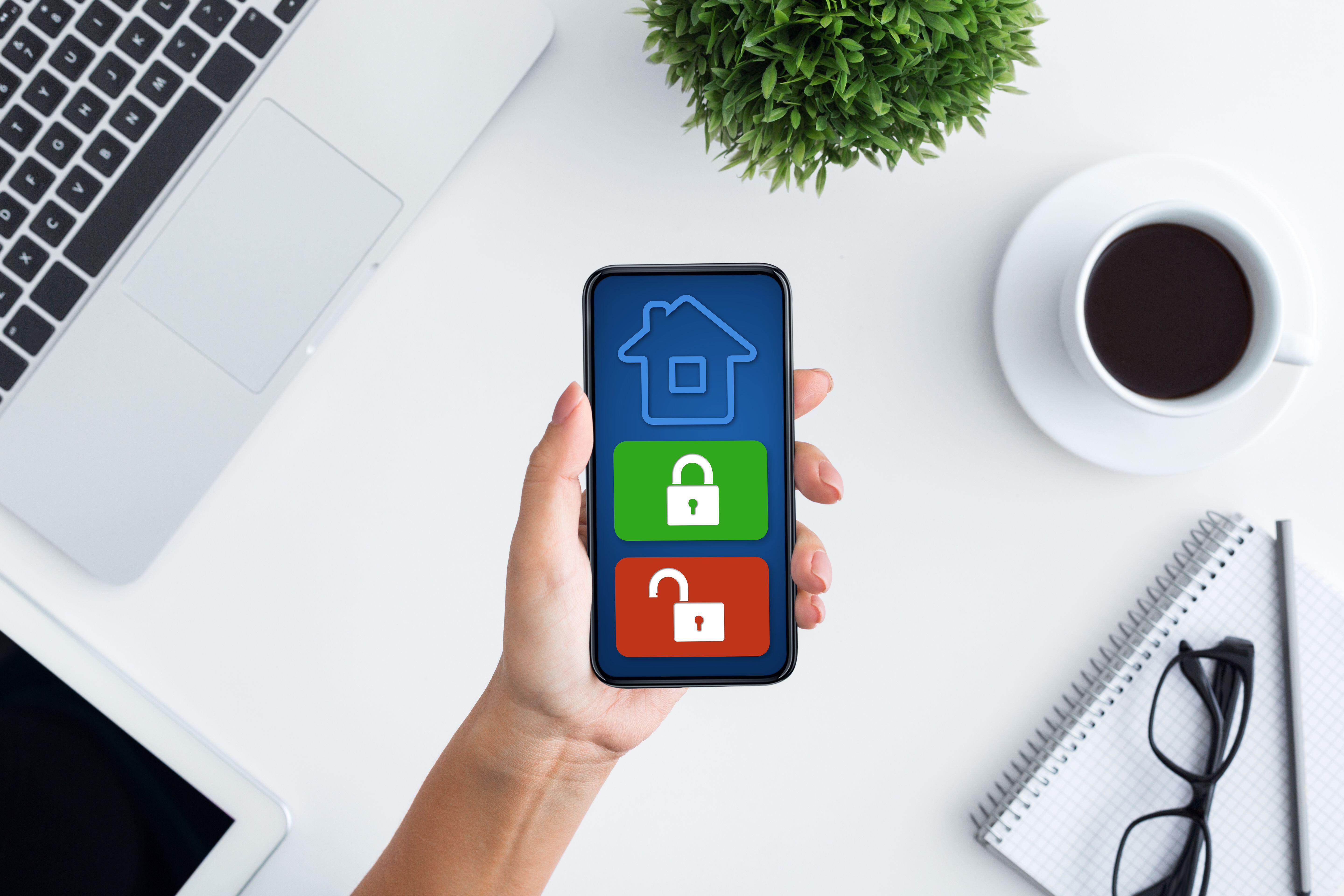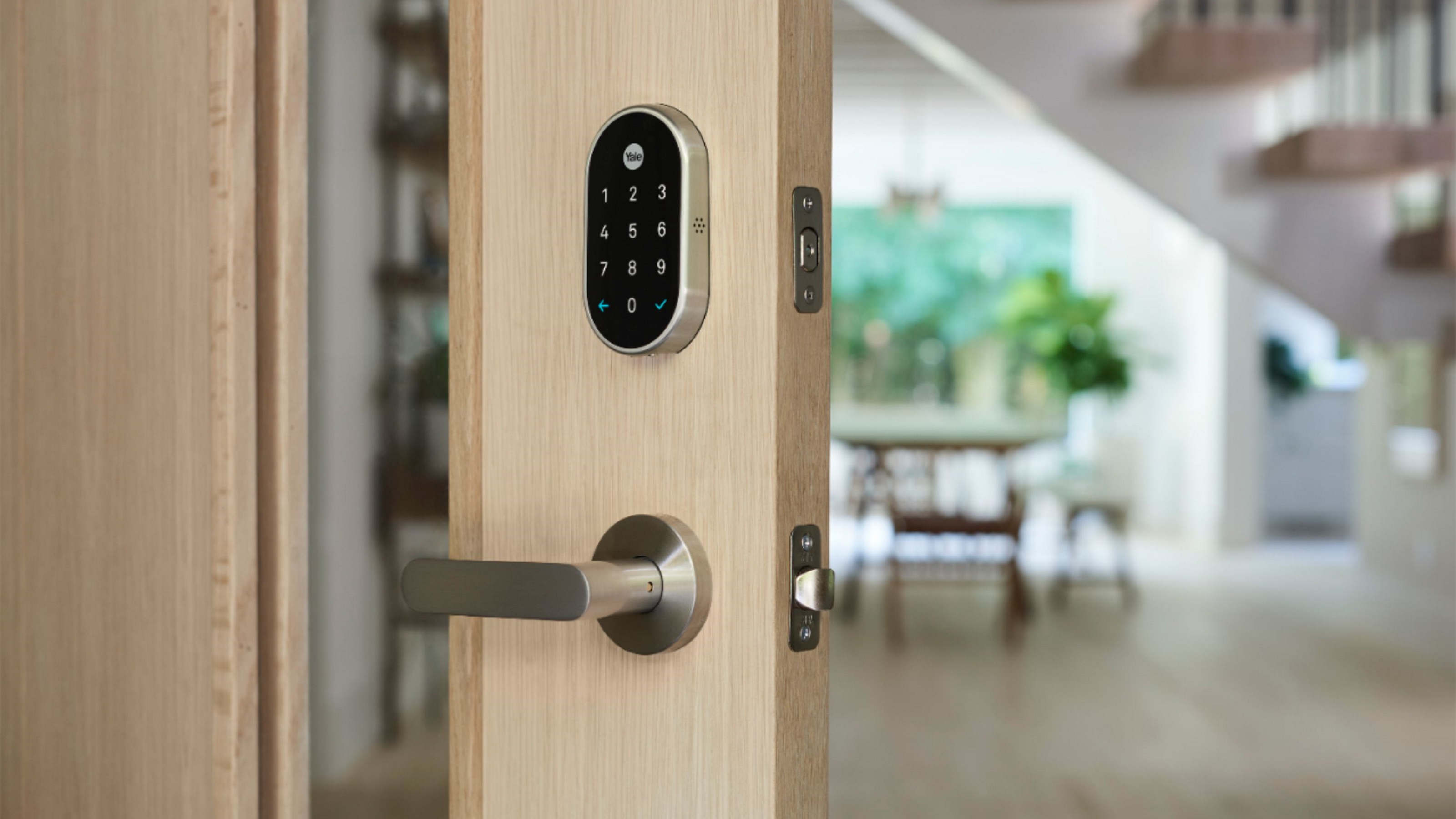Should I get a smart lock? 3 reasons you should, and 4 reasons why our tech expert has never been tempted
Smart locks can ensure you’re never locked out again, but should you stick with conventional keys?


The Livingetc newsletters are your inside source for what’s shaping interiors now - and what’s next. Discover trend forecasts, smart style ideas, and curated shopping inspiration that brings design to life. Subscribe today and stay ahead of the curve.
You are now subscribed
Your newsletter sign-up was successful
Should you get a smart lock? Despite the high cost of upgrading, several companies are betting that the convenience of going keyless will tempt even the most sceptical of smart-home shoppers to invest in the best smart locks.
But there are very real drawbacks you should consider before making this particular smart home upgrade. Here are the pros and cons of installing one in your home.

Alan is one of Livingetc's tech experts, with endless experience testing and writing about the latest smart tech. Here, he offers his expert opinion on whether you should upgrade your home's security to a smart lock.
What are the pros of getting a smart lock installed?
Never get locked out again
This is the main selling point of a smart lock. Forgetting your keys is no longer a problem, as you’ll be able to unlock your front door with your phone (and perhaps even a fingerprint or PIN if you’ve bought an especially fancy one.)
If you’ve ever experienced a cold few hours on your doorstep waiting for someone to let you in, you’ll instantly see the appeal of including a smart lock in your smart home setup.
Forget to lock? Do it later
By the same token, if you’re the kind of person who routinely worries that you’ve forgotten to lock your door, smart locks offer enormous peace of mind.
The Livingetc newsletters are your inside source for what’s shaping interiors now - and what’s next. Discover trend forecasts, smart style ideas, and curated shopping inspiration that brings design to life. Subscribe today and stay ahead of the curve.
Just log into the app and see the status of your lock in real-time. If it’s unlocked, just lock it remotely with a tap of the screen.
Greenlight guests when you’re not around
Some smart locks let you create temporary guest passes and revoke them at will. The benefit here will be obvious if you employ people to check in on your house while you’re away, like dog sitters, childminders or cleaners.
It also means you can let guests in while you’re away, and if you’re in the Airbnb business, this kills the risk of visitors copying keys for access after their rental ends.
What are the drawback of smart locks?
Is relying on your phone really better than keys?
Yes, most of us wouldn’t dream of leaving home without our smartphone, given its status as games console, music player, radio and messaging tool all in one.
But is a phone really that much more convenient than keys? You have to keep it charged, and there’s always a risk of it breaking or being stolen too. While most smart locks have backup mechanisms including traditional keys, fingerprint and PIN access, you might decide that it’s not as convenient as it sounds after all.
It’s another thing to keep charged
Because of the moving parts and the need to connect to smartphones, smart locks need power. That means you’re either going to have to change the batteries every so often, or recharge the one that comes with it.
Sure, that’s likely something you won’t have to do very often, but the risks of forgetting to do so are pretty high, if you’ve not stumped for a model which lets you in via an old-school key.

There’s a hacking risk
If you can connect your phone to a lock, then a hacker might one day be able to do the same. And if a hacker can make your door unlock at will, then they won’t just be stealing your data: they’ll take your TV too.
To be entirely fair, this is more of a theoretical risk rather than a real one for now, even if researchers have found weaknesses in the past. But it’s still not a risk that comes with a traditional key-based lock with no wireless connectivity to speak of.
Could it one day be obsolete?
Aware of the hacking risks, manufacturers of smart locks are able to push out security updates quickly, and as long as you’re vigilant about downloading them, your home should be safe enough.
But what happens if Company X stops supporting its first-generation lock, and security risks go unpatched? For that matter, what happens if Company X goes bust? Your app could one day stop working — which isn’t something you can say for a standard door key.
So, should I get a smart lock? Our expert's verdict
Personally — as a tech journalist with smart-home elements installed, including a Ring doorbell, a smart catflap, a Nest thermostat and various smart speakers — I’ve not been tempted by a smart lock.
That’s because, to me, they don’t seem to justify the expense, given my lifestyle. I don’t find my house keys particularly inconvenient and haven’t managed to lock myself out since 2008 (something that only happened because I was moving between houses, and forgot that I needed to check for two sets of keys, rather than one.)
But you may have different circumstances to me, and the ability to add and remove people from having access is certainly handy if you have an array of dog walkers, childminders and cleaners accessing your place. At that point, not having lots of duplicate keys flying around might genuinely be advantageous.
Just make sure you pick a model with multiple access methods from a reputable brand that’s here for the long haul. And make sure you frequently check for security updates, whatever you do.

Freelance contributor Alan has been writing about tech for over a decade, covering phones, drones and everything in between. Previously Deputy Editor of tech site Alphr, his words are found all over the web and in the occasional magazine too. He often writes for T3 and Tom's Guide. When not weighing up the pros and cons of the latest smartwatch, you'll probably find him tackling his ever-growing games backlog. Or, more likely, playing Spelunky for the millionth time.